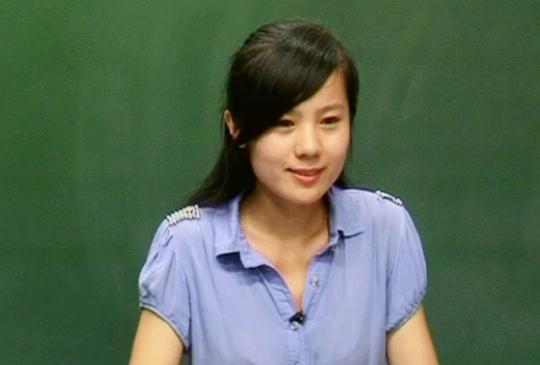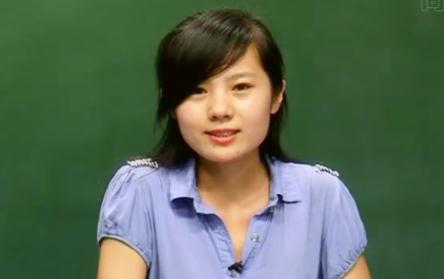课程内容
高中英语《发明和发明家 Unit 3 Inventors and inventions (part 4)》(选修8)
Grammar
the Past Participle,
as the Attribute,Predicative and Object complement
一、动词-ed形式作定语
过去分词作定语往往与被修饰的词靠的很紧,渐渐地成为一个复合词。这种分词叫分词形容词(the Participle Adjective),实际上相当于一个单纯的形容词,除表示“完成”的动作之外,还表示“被动”的意义。如:
spoken English (英语口语);
iced beer(冰冻啤酒);cooked food (熟食);
fried chips (炸土豆条);
但要注意不及物动词的过去分词常表示“完成”的动作,而不表示“被动”意义。如:
boiled water(开水);fallen leaves(落叶)
the risen sun (升起的太阳)等
1.The tall man is a returned student.
高个子的那个人是个归国留学生。
2.My parents are both retired teachers.
我的父母都是退休教师。
(1)前置定语
单个的动词-ed形式,一般放在被修饰的名词的前面,作前置定语。
The excited people rushed into building.
激动的人们冲进大楼。
(=the people whp were excited)
Lost time can never be found again.
虚度的时光,无法挽回。
(=time which is lost)
(2)后置定语
①少数单个动词的-ed形式,如left等,只能作后置定语。
1.Everything used should be marked.
所有用过的动词应该做好标记。
2.Among the invited were some ladies.
被邀请的人中,有些是女士。
3.The books left are for my students.
剩下的书是给我的学生的。
②动词-ed形式短语作定语时,通常要放在被修饰的名词的后面,在意思上相当于一个定语从句。
1.Is there anything planned for tonight?
今晚有什么活动吗?
(=That has been planned for tonight)
2.The meeting,attended by a lot of people,was a success.
这次会议有很多人出席,开得很成功。
(=which was attended by a lot of people)
高考链接
1)Most of the artists (A)to the party were from South Africa.
A invited B to invite C being invited D had been invited
2)The first text books (D)for teaching English as a foreign language came out in the 16th century.
A having written B to be written C being written D written
二、动词-ed形式作表语
过去分词作表语并无“完成”或“被动”之意,而是表示主语的状语或思想感情等。如:
He looked worried after reading the letter.
看完信后,他显得很忧虑。
When we heard of it,we were deeply moved.
当我们听到这件事时,被深深地感到了。
He seemed quite delighted at the idea.
听到这个想法,他似乎很高兴。
作表语的-ed形式可被much,very,quite等所修饰
I was very pleased at the news.
听了这消息我很高兴。
He grew much tired of the work.
他十分厌倦这工作。
高考链接
1)Cleaning women in big cities usually get (C)by the hour.
A pay B paying C paid D to play
2)As we joined the big crowd I got (A)from my friends.
A separated B spared C lost D missed
三、动词-ed形式作宾语补足语
能用作宾语补足语的过去分词一般都是及物动词,表示被动意义或已完成意义,有时候两者兼而有之。作宾语补足语的过去分词与宾语有逻辑上的动宾关系,即宾语是过去分词动作的对象。
如:
She found the door broken in when she came back.
她回来时发现有人破门而入。
My grandfather had his old house rebuilt.
我爷爷找人重修了一下他的旧房子。
(1)动词-ed可作表示感觉和心理状态的动词的宾语补足语,这类动词包括see,hear,watch,notice,feel,find,think,suppose,consider等。
We thought the game lost.
我们认为球赛输了。
(2)动词-ed形式可作使役动词的宾语补足语,这类动词包括make,get,have,keep,leave,hold等
I have my hair cut once a month.
我每个月理一次发。
He was trying to make himself understood.
他正努力使别人听懂自己。
She held her hands pressed against her face.
她用双手按着脸。
"have+宾语+done"结构有三个含义:
①(请人)把某事做完。
She had her house repaired.
她请人把屋子修好了。
Where did you have your hair cut?
你在哪儿理的发?
②参遭遇某种意外情况。
He had his hat blown away on his way home.
在回家的路上他的帽子被吹掉了。
She had her wallet stolen yesterday.
昨天她的钱包被偷了。
③完成某事(自己也可能参与)
I have had all my spelling mistakes corrected.
我把所有的拼写错误都改正了。
He has had one thousand yuan saved this year.
他今年已存了1000元。
(3)动词-ed形式可作表示希望、要求、命令等动词的宾语补足语,这类动词包括like,want,wish,expect,order等”这一类动词的后面作宾语补足语。
He won't like such questions discussed at the meeting.
他不喜欢在会议上讨论这样的问题。
The students wish the TV serial plays continued.
学生们希望电视连续剧继续播下去。
(4)过去分词用在“with+宾语+宾补”这一结构中,过去分词与宾语之间是动宾关系。
With many brightly colored flowers planted around the building,his house looks like a beautiful garden.
周围种了许多色彩鲜艳的花,他的房子看上就像一座漂亮的花园。
高考链接
1)-Good morning,Can I help you?
-I'd like to have this package (D),madam/
A be weighed B to be weighed C to weigh D weighed
2)The missing boy were last seen (A)near the river.
A playing B to be playing C play D played
3)The managers discussed the plan that they would like to see (C)the next year.
A carry out B carrying out C carried out D to carry out
Homework
Make your note about this part and do the exercises!
此内容正在抓紧时间编辑中,请耐心等待
范老师
女,中教中级职称
市级骨干教师,多次获省市级青年教师比赛一等奖。






















